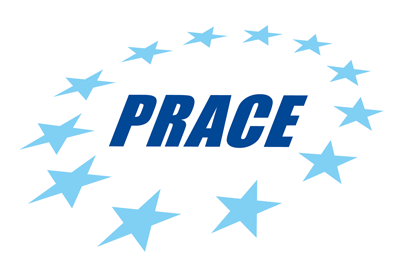[ONLINE] 40th VI-HPS Tuning Workshop @ LRZ
Date: 14 - 18 June 2021
Goals
This workshop organised by VI-HPS and LRZ as a PRACE training event will:
give an overview of the VI-HPS programming tools suite
explain the functionality of individual tools, and how to use them effectively
offer hands-on experience and expert assistance using the tools
On completion participants should be familiar with common performance analysis and diagnosis techniques and how they can be employed in practice (on a range of HPC systems). Those who prepared their own application test cases will have been coached in the tuning of their measurement and analysis, and provided optimization suggestions.
Programme Overview
Presentations and hands-on sessions are planned on the following topics:
Setting up, welcome and introduction
mpiP lightweight MPI profiling
TAU performance system
MAQAO performance analysis & optimisation
Score-P instrumentation and measurement
Scalasca automated trace analysis
Paraver/Extrae/Dimemas trace analysis and performance prediction
Extra-P automated performance modeling
[k]cachegrind cache utilisation analysis
... and potentially others to be added
A brief overview of the capabilities of these and associated tools is provided in the VI-HPS Tools Guide.
The workshop will be held in English and run from 09:00 to not later than 18:00 each day, with breaks.
Participants are encouraged to prepare their own MPI, OpenMP and hybrid MPI+OpenMP parallel application codes for analysis.
Programme in Detail (provisional) - all times given as CEST (UTC+2)
Day 1:
Monday 14 June
09:00
Welcome [Volker Weinberg]
Introduction to Zoom
The IvyMUC system
Introduction to VI-HPS & overview of tools [Valensi]
Introduction to parallel performance engineering
Building and running NPB/BT-MZ on IvyMUC [Knobloch]
10:30
(break)
11:00
Preparation of participants' own codes on IvyMUC
12:30
(lunch)
14:00
kCachegrind cache utilisation analysis [Josef Weidendorfer, LRZ]
15:30
(break)
16:00
Hands-on coaching to apply kCachegrind to analyze participants' own code(s).
17:30
Review of day and schedule for remainder of workshop
18:00
(adjourn)
Day 2:
Tuesday 15 June
09:00
MAQAO performance analysis tools [Jäsper Ibnamar & Emmanuel Oseret, UVSQ]
MAQAO hands-on exercises (MAQAO quick reference)
10:30
(break)
11:00
BSC performance tools [Judit Giménez & Lau Mercadal, BSC]
Tools installation
BSC tools hands-on exercises
12:30
(lunch)
14:00
Hands-on coaching to apply MAQAO to analyze participants' own code(s).
15:30
(break)
16:00
Hands-on coaching to apply Paraver to analyze participants' own code(s).
17:30
Schedule for remainder of workshop
18:00
(adjourn)
Day 3:
Wednesday 16 June
09:00
Score-P instrumentation & measurement toolset [Brian Wylie, Michael Knobloch & Radita Liem, JSC]
Score-P analysis scoring & measurement filtering
Score-P hands-on exercises
CUBE profile explorer hands-on exercises
10:30
(break)
11:00
Score-P specialized instrumentation and measurement [Brian Wylie, Michael Knobloch & Radita Liem, JSC]
Score-P hands-on exercises
12:30
(lunch)
14:00
Hands-on coaching to apply Score-P/CUBE to analyze participants' own code(s).
15:30
(break)
16:00
TAU performance system [Sameer Shende, UOregon]
TAU hands-on exercises
17:30
Review of day and schedule for remainder of workshop
18:00
(adjourn)
Day 4:
Thursday 17 June
09:00
Scalasca automated trace analysis [Brian Wylie, JSC]
Scalasca hands-on exercises
10:30
(break)
11:00
Extra-P automated performance modeling [Marcus Ritter, TUDarmstadt]
Extra-P hands-on exercises
12:30
(lunch)
14:00
Hands-on coaching to apply Scalasca to analyze participants' own code(s).
15:30
(break)
16:00
Hands-on coaching to apply TAU to analyze participants' own code(s).
17:30
Review of day and schedule for remainder of workshop
18:00
(adjourn)
Day 5:
Friday 18 June
09:00
mpiP lightweight MPI profiling [Martin Schulz, TUM/LRZ]
mpiP hands-on exercises
10:30
Review of the workshop [Cédric Valensi, UVSQ]
10:45
(break)
11:00
Hands-on coaching to apply tools to analyze participants' own code(s).
12:30
(lunch)
14:00
Hands-on coaching to apply tools to analyze participants' own code(s).
16:00
(adjourn)
Hardware and Software Platforms
IvyMUC
8-way Ivy Bridge-based Linux Cluster
FDR14 Infiniband interconnect
31 nodes, 16 cores per node
64 GB DDR Memory per node
Operating System: SUSE Linux Enterprise Server (SLES) 12 SP5
Compilers: Intel icc, icpc, ifort 19.0
Intel MPI
The local HPC system IvyMUC is the primary platform for the workshop and will be used for the hands-on exercises. Course accounts will be provided during the workshop to participants without existing accounts. Other systems where up-to-date versions of the tools are installed can also be used when preferred, though support may be limited and participants are expected to already possess user accounts on non-local systems. Regardless of whichever external systems they intend to use, participants should be familiar with the relevant procedures for compiling and running their parallel applications (via batch queues where appropriate).
Contact
Tuning Workshop Series
Cédric Valensi
Université de Versailles Saint-Quentin-en-Yvelines
Email: cedric.valensi[at]uvsq.fr
Local Arrangements
Volker Weinberg
Leibniz Supercomputing Centre
Email: educatio[at]lrz.de
Sponsors
This workshop is a PRACE training event, organised by LRZ and VI-HPS for the Gauss Centre for Supercomputing.
Event types:
- Workshops and courses
Activity log

